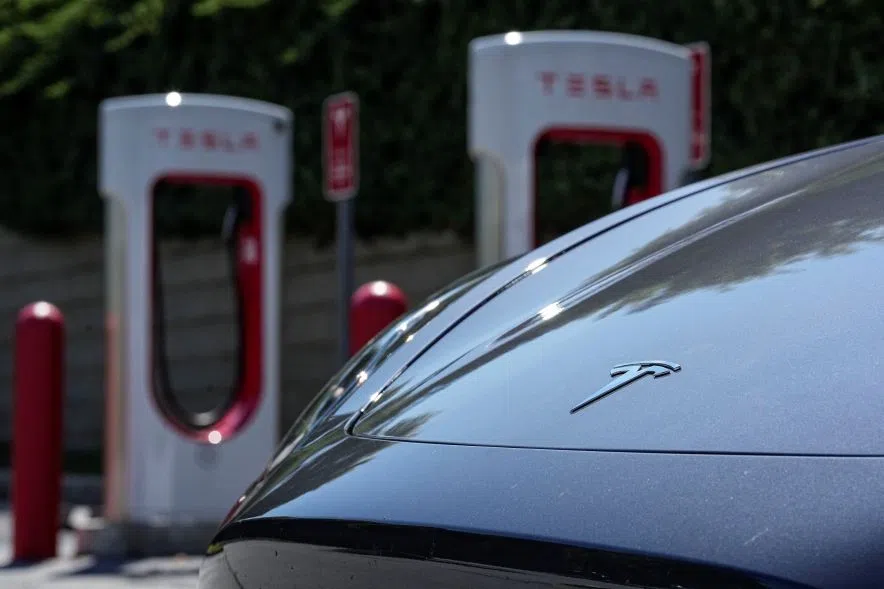As Canada continues on its path towards a zero-emission future, SaskPower is preparing for more Saskatchewan people to plug into the power grid with electric vehicles.
Scott McGregor, spokesperson for SaskPower, told Evan Bray on Thursday that the corporation launched a first-of-its-kind study between 2021 and 2022 that was designed to gather data around the driving and charging habits of 100 electric vehicle (EV) owners across the province.
SaskPower has just relaunched this survey with the hope of getting responses from 400 participants this time, in order to gather even more data as the corporation reviews where, how and when people are charging EVs.
“It’s one part of what we’re doing to prepare for a future that has a lot more electrification,” McGregor told Bray.
McGregor said electricity use is increasing every year in Saskatchewan.
“To that end, we are always increasing our generating capacity, having more power that we can send to people’s homes, as well as making our transmission distribution networks a lot more robust so they can handle this increased demand,” he explained.
READ MORE:
- Sask.-based company looks to improve electric vehicle technologies
- Canada’s electric vehicle push met with excitement, concern
However, he admitted that the electrification of the transportation industry will likely have a substantial impact on Saskatchewan’s power grid.
When asked whether the Canadian government’s goal of making 100 per cent of vehicles sold in Canada electric or plug-in hybrids by 2035 is attainable, McGregor told Bray it’s something the Crown corporation is “certainly planning for.”
McGregor noted that EV ownership is relatively low in Saskatchewan, but the market is growing. SaskPower monitors buying trends, supply chain frequency and changing regulations as part of how it routinely forecasts and projects on what the electrical system will need in terms of managing liability and cost-effectiveness in the future.
Keeping an eye on “the ever-changing EV landscape,” McGregor said SaskPower is monitoring the sizes of batteries being produced and their charging requirements, while also doing research on the time and power it will take for owners to charge their vehicles.
On average, McGregor said charging EV batteries requires around 40 kilowatt hours, but the time to charge from empty to full depends on what kind of charging infrastructure someone has access to. There are also variances in cost, with vehicle battery size charging frequency factored in.
McGregor estimated that an average light passenger EV would likely cost between $50 and $60 in power each month, while an electric truck would likely result in a monthly bill of closer to $90.
Considering the possibility of power outages preventing EV owners from travelling as they need, McGregor said that reliability is a big part of the strategy and future forecasting SaskPower is presently working on.
Referencing the corporation’s core responsibility of providing safe and reliable power to customers, McGregor said any unplanned outage is taken very seriously and, with more electric vehicles on the horizon, the corporation will work towards ensuring that power remains reliable for all of Saskatchewan.
Several EVs are part of SaskPower’s current vehicle fleet, McGregor told Bray.
“We wouldn’t be much of a power corporation if we didn’t understand what it takes to have an EV and charge an EV,” McGregor said, adding that the vehicles are used for both transportation and study. McGregor said the vehicles have proven themselves to be reliable for transporting employees.
When asked about the prevalence of fast-charging stations throughout the province, McGregor said SaskPower hasn’t actively monitored how many there are. He recommended plugshare.com to EV owners trying to plan routes while considering charging options. SaskPower has also helped fund new fast-charging stations in the province on less-travelled roads through its electric vehicle infrastructure program last year, he added.
Future EV infrastructure funding is something SaskPower is considering as the corporation looks to enable EV drivers in the province.
The full interview with McGregor can be heard below.












